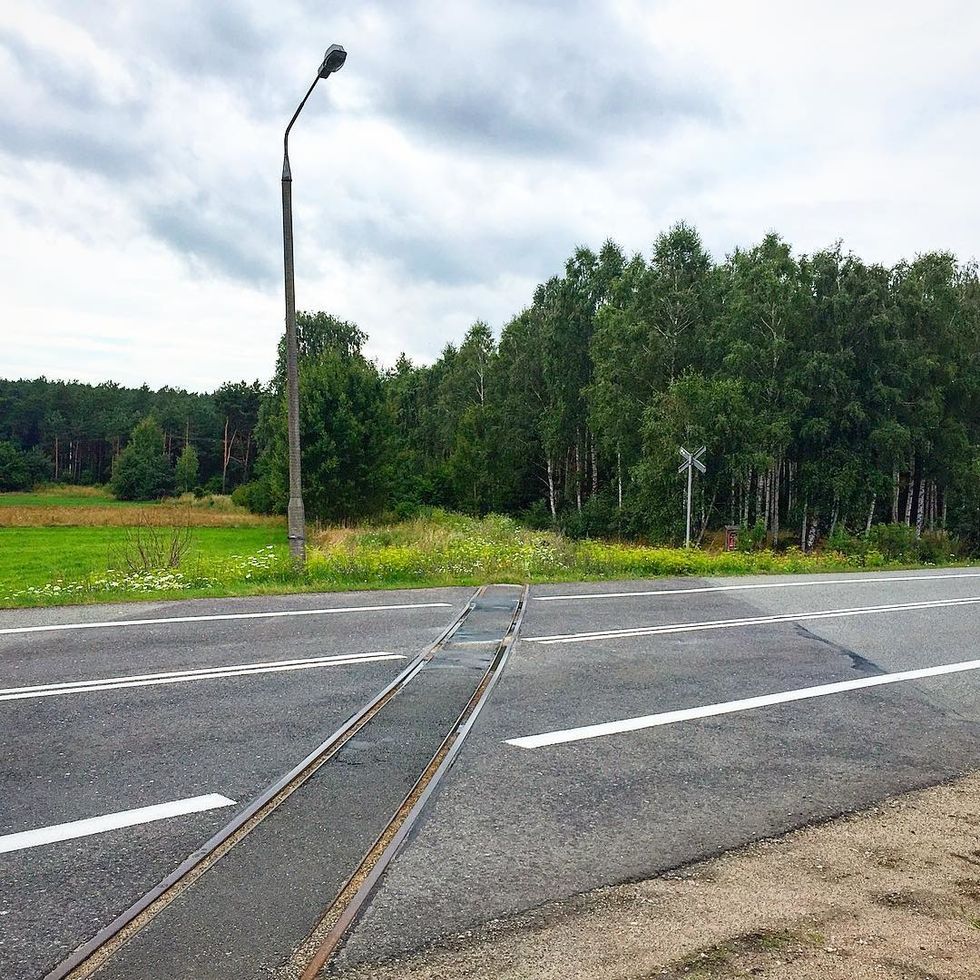"I took the road less traveled by, and that has made all the difference."
Ask anyone who has been in the United States for an extended period of time, and they can tell you that they're familiar with those words. Splattered across inspirational posters and bumper stickers everywhere, we have taken the final two lines of Robert Frost's "The Road Not Taken" to be a testament to American self-determination and free will. Anyone can say in a job interview, "I took the road less traveled by," and say it like they are the most special person in the world.
But those were just the last two lines. That sentiment is not true in the context of the entire poem: one road was "just as fair" and "had worn them really about the same." It seems, instead, that the choice doesn't really matter. Fretting about the road not taken is a meaningless pursuit, because you'll never really know. The fact that the narrator is even thinking so hard about which road to take between two similar ones, and the fact that he "kept the first for another day!" indicates an indecisiveness. Frost seems to say that you have to just choose one path and commit to it, even if it's just a random choice, instead of thinking about the other decision you could have made. That is why author David Orr labeled "The Road Not Taken" "the most misread poem in America."
The creative force of Robert Frost, according to literary critic Harold Bloom, lies in his nature as "a trickster and mischiefer to the aesthetic benefit of the poetry." Bloom goes on to say that he respects Frost as one of his favorite poets because "Frost can be cruel, ambiguous toward women, and thoroughly morbid, but a great poet can afford all that and more."
For Robert Frost, this choice was intentional. He would write, in 1926, to Cristine Yates, that the poem "was my rather private jest at the expense of those who might think I would yet live to be sorry for the way I had taken in life." Frost intended for the poem to be subtle. Maybe he just saw the fun in messing with the average reader. But my Frost is saying something different with a mask on the surface. In "Orange Is The New Black," a TV comedy about a women's prism, main character Piper Chapman, said that "everyone thinks the poem means to break away from the crowd and do your own thing...but in reality, shit just happens the way it happens, and it doesn't matter."
This certainly seems to fit into Robert Frost's framework, for at his 85th birthday celebration, critic Lionel Trilling called Frost a "terrifying" poet, a poet of "complexity, uncertainty, and anxiety." What else would you call the elements of life that God made mysterious and out of our control? A less well-known quote attributed to Frost is: "in three words I can sum up everything I've learned about life: it goes on." That is likely what he believed, and learned, much more so than the belief that we are the authors of our own narrative and destiny. Robert Frost, in this last quote, embodies the Socratic paradox: "I know that I know nothing." The older Robert Frost became, the more he realized and admitted how much he didn't know, and in philosophy, that knowledge was Socrates's famous mark of wisdom,
That's certainly one way to read the poem, but I deliberately choose to be tricked. For my Frost, the poem is to be read whichever way we saw it - and if that means I'm being tricked, then I want to be tricked and inspired, and buy into the private jest that "I took the one less traveled by, and that has made all the difference."
The truth is that we are not static or immutable creatures. We are dynamic our whole lives. Yes, I don't know what I will be, or who you will be a day from now or even a month from now. But Robert Frost speaks a certain truth that the only thing we know for certain about our lives, for now, is that it goes on. Who is someone to tell another that their beliefs that allow them to carry on are wrong? We need to think and believe whatever is true to us to give us the strength and willpower to go on, even when things don't make sense. Because for most of us, the process of moving on is long, hard, and gradual.
Moving on from what happened in our past means to not regret our choices and whatever happened. But it means something else too - once you can separate yourself from those events, it's time to own whatever choices you might regret, to invite select others into your past of shame and suffering. Emotions are oxymoronic - there is the Portuguese word of Saudade that explains a deep feeling of sadness, nostalgia, but also joy. So the notion of the regret that Frost rejects is not mutually exclusive from his urging for us to move on - no, we can do both at once.
So, yes: I misunderstood "The Road Not Taken" at first, and maybe you did, too. But does it matter? I don't know. But it doesn't matter to me, and for the time being, I will still throw around the verse that "I took the road less traveled by" as a source of pride and inspiration. Because I think that God put every person on a path is drastically different, but equal to the next person, and above all, I will allow myself to be tricked and fooled because I personally need to believe so.









































